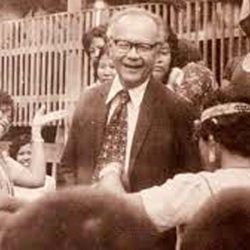City farming is our future!
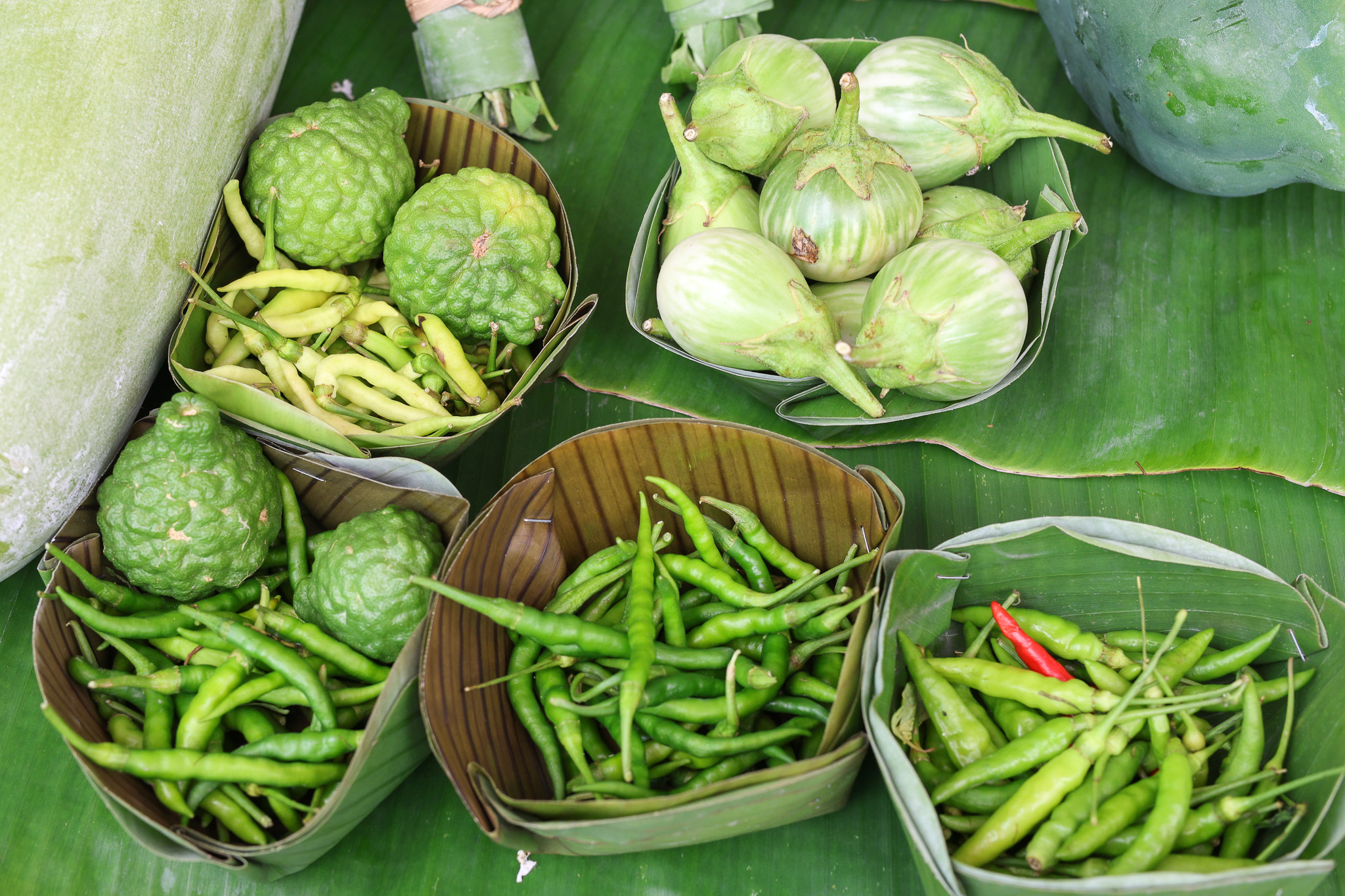
Small spaces for growing vegetables are on the rise around Bangkok as more city dwellers realise that this modest activity helps to add money to their wallets and reduces their daily expenses.
In fact, city farming has become a global trend, according to Ply Pirom, Sustainable Consumption and Production Project Manager at WWF Thailand, which has long campaigned for urban farming. “Urban people know how to eat but don’t know where the food comes from. They also eat only a few types of vegetables and consume the same thing almost every day. That’s not sustainable at all.”
The Sustainable Agricultural Foundation (Thailand) indicates that 70% of the food supply in big cities comes from elsewhere and cities can generally produce only 30% of the food needed. Urban farming has, therefore, become a new trend worldwide, including in Bangkok.

The annual “Suan Phak Khon Muang” (urban vegetable farms) event held recently by the Foundation, brought many urban farmers together to share their experience of turning small spaces in their homes and communities into miniature vegetable farms.
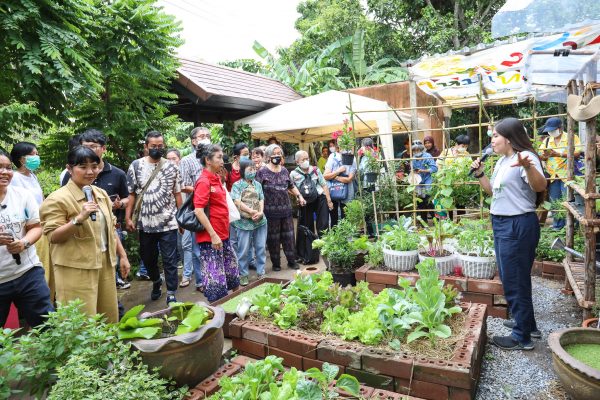
Aunty Tim, a leader of a small community on the outskirts of Bangkok, said: “We can thank Covid for leading us to grow vegetables. Some people in our community lost their jobs and had nothing to eat. We went to the market but there was nothing for us to buy. We were so frustrated. So we started to grow vegetables in a small space in our community and share our produce with our neighbours.
We found ourselves becoming happier. We have fresh vegetables from our little garden. We talk more to our neighbours. We see our children eating a healthier diet. We have fun exploring how to preserve excess vegetables and also sell them for more money.”
Seeing city farming as an effective solution, the Thai Health Promotion Foundation has funded a number of communities and organisations to start small vegetable gardens.
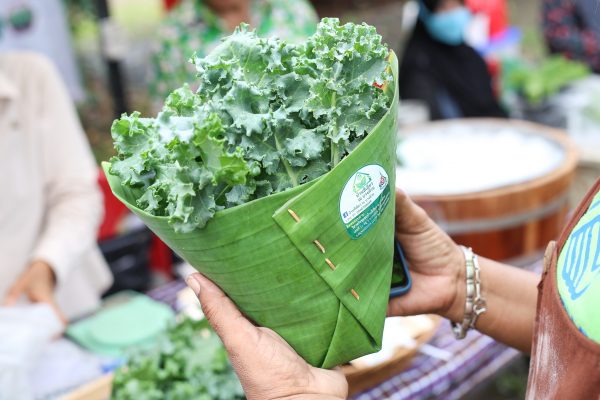
“So far, the Thai Health Promotion Foundation has provided funding to 38 areas around Bangkok. This number might not be high, but the impact is so powerful,” the foundation’s Khempet Lenapun told Thai PBS.
Government and private organisations have also started to adopt urban farming ideas.
Lak Si District office has turned the empty space on the top floor of its office into a small vegetable farm. Starting from growing vegetables in pots, the district office later covered the rooftop with dried coconut husk chips and soil and grew various vegetables. This rooftop garden has become a learning centre for interested urban people.
Food supplement company, Thavorn MedLine also has a successful case to share. During Covid, the company temporarily shut down operations. The company encouraged its employees to grow vegetables on the company premises with one goal – this garden must be able to feed every employee at least one meal a day.
Through trial and error, the company expanded its vegetable garden area and has now increased vegetable production from 100 kilograms per year to 400 kg per year. This helps its employees to save 200-400 baht on vegetables per month per family.
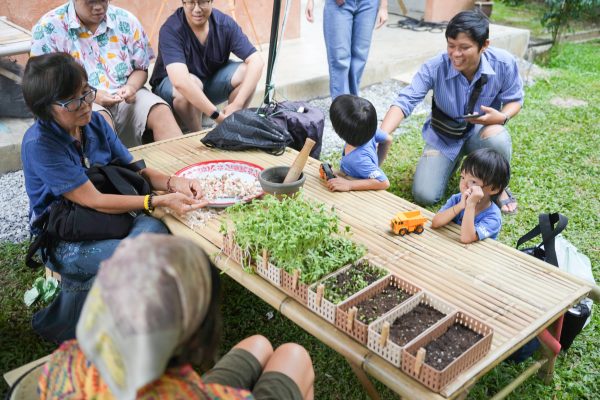
In addition to the economic benefits, Doctor Jib, a retired psychologist, shared an interesting experience.
“I found myself in tears one day because our activity therapy was so small. I felt strongly that my patients did not deserve this small, sad and dull room. So I took them outside and started to plant a small garden. I saw my patients improve a lot as they spent more time in warm sunlight and green nature. We all enjoyed fresh green vegetables from our garden too,” said Dr. Jib.
Bangkok Metropolitan Administration (BMA) has welcomed the city farming idea and integrated it with its city development plan, said BMA deputy governor Sanon Wangsrangboon. BMA has allocated small areas in each Ban Mankhong housing estate for the poor as vegetable gardens in order to promote food security in each project.
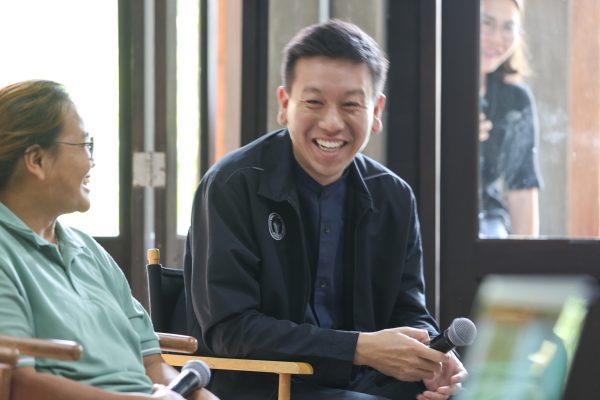
The improvement of the area along the railway tracks to the airport also includes small farming areas. More funding has also been allocated to promote city farming.
“People have to change their perception. Gardening and growing vegetables are no longer something for the elderly. It is, in fact, our future, our sustainable future,” said Sanon.

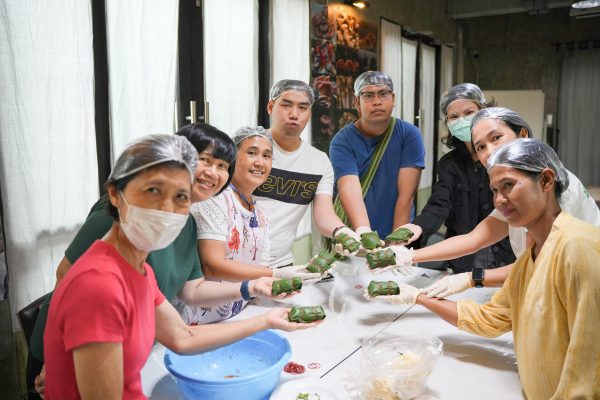
By Veena Thoopkrajae with additional report by Kanokchan Patanapichai//Photo courtesy of WWF

